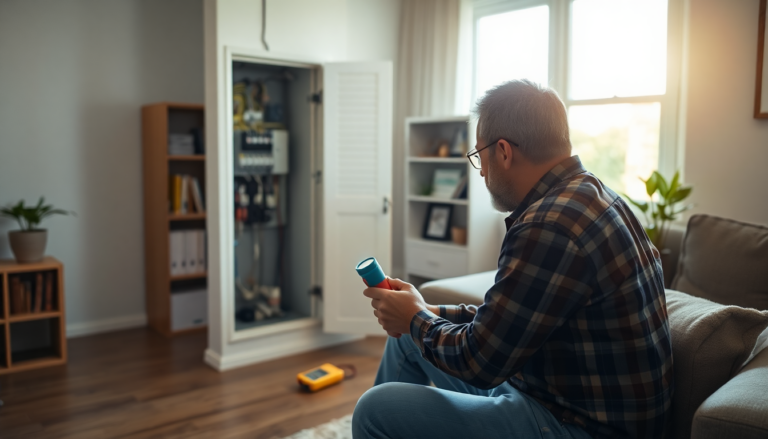Argomenti trattati
Understanding the importance of home inspections
When you’re on the journey to find your dream home, you might view home inspections as just another hurdle to jump over. However, skipping this step can lead to significant repercussions. A home inspection is more than just a checklist of features; it’s a thorough evaluation that ensures the property is safe and sound. It assesses everything from structural integrity to plumbing and electrical systems, providing insights into any potential issues that could arise after your purchase.
A comprehensive home inspection not only reveals whether the house is livable but also identifies repairs that may be necessary in the future. This upfront investment can ultimately save you money, making the process smoother and less stressful if approached with the right preparation.
What to expect during a home inspection
Home inspections typically occur once a buyer’s offer is accepted, during the escrow period. This is a critical moment when both the buyer and seller want to ensure they are making a sound agreement. The inspector evaluates various systems in the home, including heating and cooling, plumbing, electrical work, and safety features. They also check for any visible signs of damage or risks that could affect the property’s value.
While it’s possible to skip a traditional home inspection, most experts strongly advise against it. The only reasons you might consider forgoing this step include the presence of multiple competitive offers or an urgent closing timeline. However, if a seller is overly eager to skip the inspection, it might be a red flag indicating they are trying to conceal problems.
Can you skip a home inspection?
The short answer is yes, but it’s highly discouraged. Home purchases are significant investments, and skipping this vital step can lead to unforeseen issues down the line. Leslie Turner, a real estate broker, emphasizes that a home inspection can save you from expensive surprises after closing. It ensures you’re aware of the property’s condition from the foundation to the roof, protecting both your financial interests and your safety.
If you do decide to forego an inspection, it’s essential to conduct your own research. Mark Buskuhl, CEO of Ninebird Properties, suggests that buyers should thoroughly investigate public records, recent appraisals, and any potential issues directly with the seller or their agent. Additionally, consulting with contractors for renovations can provide valuable insights into potential problems that may not be immediately visible.
How much does a home inspection cost?
Understanding the costs involved is crucial for any prospective homeowner. Generally, home inspections range from $300 to $500, depending on the size and type of property. Additional fees may apply for specialized tests, such as radon or termite inspections. According to the National Association of Realtors, the average cost of a home inspection in 2025 is expected to be around $400, but this can vary based on market demand.
If your dream home has unique features such as an oil tank or swimming pool, be prepared for additional inspections. Some companies offer comprehensive packages that cover multiple inspections in one visit, so it’s wise to inquire about what is included to avoid any surprises.
Finding a reliable home inspector
When selling your home, having a skilled real estate agent can make a significant difference. They can recommend trusted local home inspectors, ensuring you find someone qualified. Before hiring, verify their certifications and experience. A good inspector should be able to walk you through the process, explaining their findings in detail and answering any questions you might have.
Getting a second opinion can also be beneficial. Differences in inspection reports can be startling, so finding a well-reviewed inspector can provide peace of mind. Having basic knowledge about what to look for, especially in older homes, can help you assess the findings critically rather than relying entirely on the inspector’s expertise.
Issues to watch out for during inspections
While many issues identified during inspections can be resolved, significant structural problems should raise alarms. Issues like a sagging roof, cracked foundations, or unsafe electrical wiring can indicate serious repair needs that might not be worth the asking price.
Common problem areas include:
- Electrical systems
- Plumbing leaks
- Roof damage
- Foundation issues
- Pest infestations
What to do if your home inspection reveals problems
If a home inspection uncovers major issues, you have several options. Most commonly, buyers will ask sellers to make necessary repairs before closing. You can also negotiate for a price reduction or request that sellers cover closing costs to offset repair expenses. The goal is to ensure that any savings reflect the cost of repairs needed.
In some cases, if issues are too extensive, it might be wiser to walk away from the deal. Remember, there will always be other homes on the market that are better suited to your needs.
By staying informed and prepared, you can navigate the home inspection process confidently, ensuring that your dream home is a safe and sound investment.

